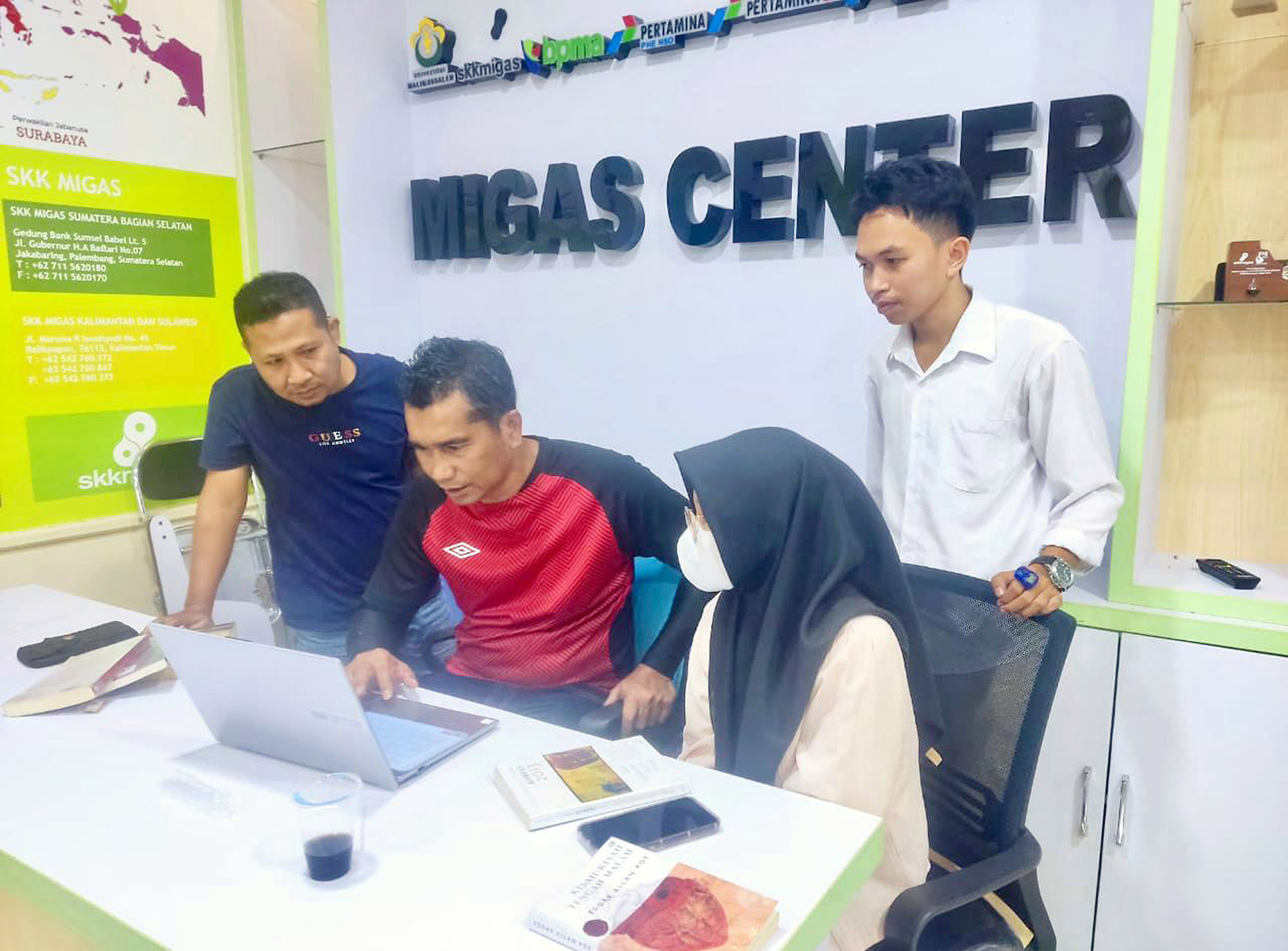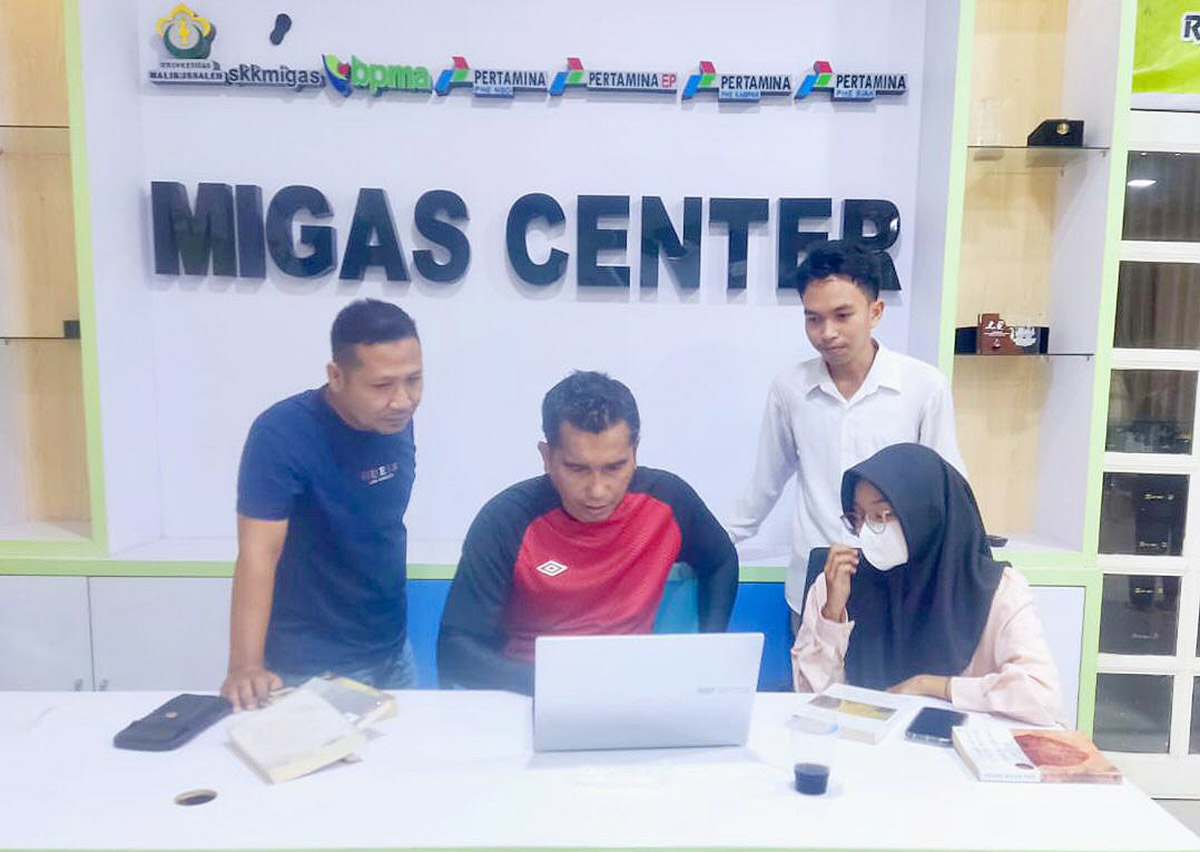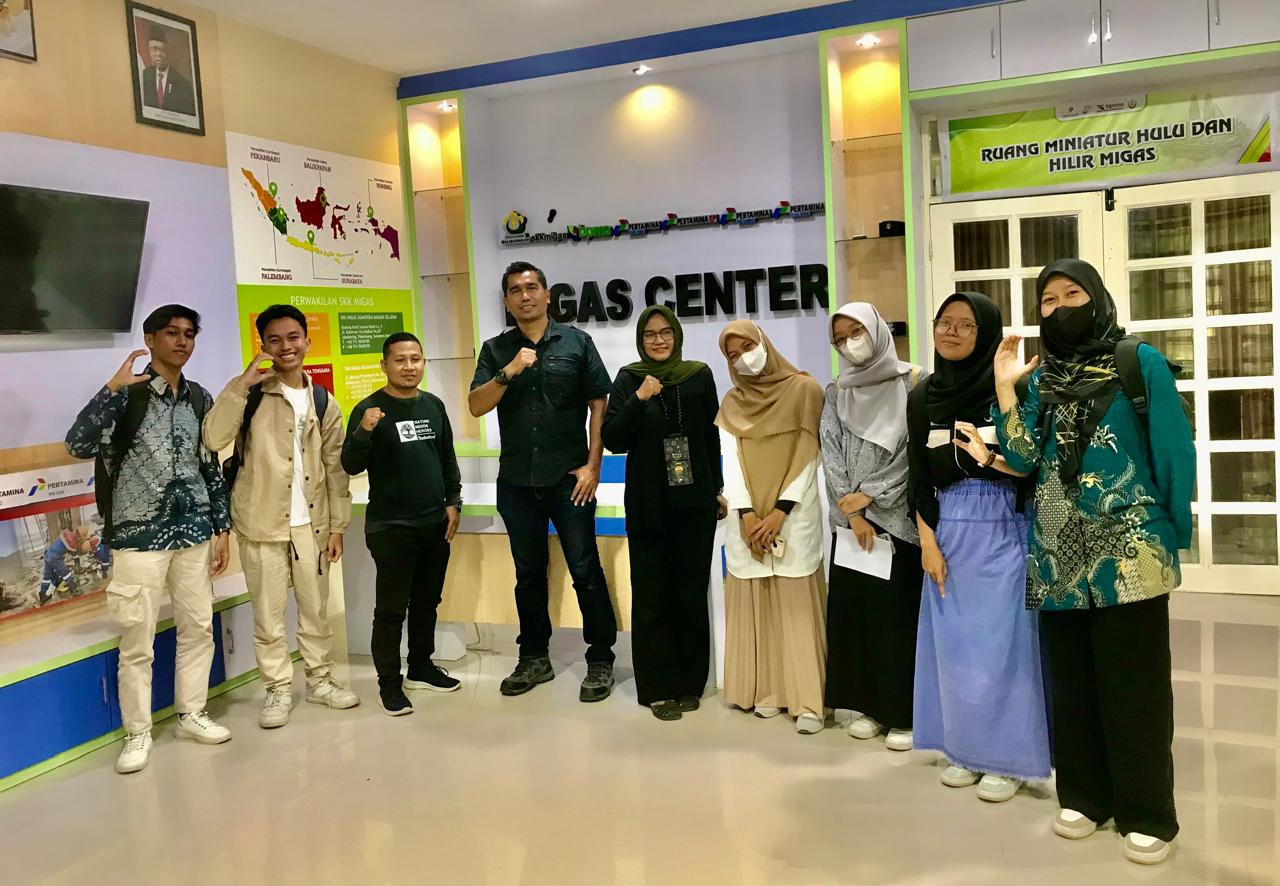Delving into Student Thoughts from Written Work:

I was with the students participating in the writing training.
To take part in a scientific writing competition about inspiring figures, Aifa Meisi Putri Aulia and her supervisor, Nanta, asked for my input. He wants to raise the profile of the gardener at his school, Arun Bangsa Capital High School, who managed to educate his son to university just from his work as a gardener.
We were sitting at Taufik Kupi Lhokseumawe at that time. There are several other students who accompany Meisi, apart from his mentor, to take part in competitions at the national level. I suggested that Meisi change the figure he was going to write about, from a school gardener to the figure of Abdullah Ishak, a hand made rencong maker in Tanah Pasir, North Aceh.
"It's not that the figure of the gardener is less inspiring, but there are many figures like that in Aceh, especially in Indonesia. He was instrumental and became the backbone of his family. Mr. Ishak also made a contribution to maintaining the nation's cultural riches. "The two cannot be compared," I explained.
Finally, Meisi agreed to choose Ishak Abdullah's profile. Nanta, my friend who is also passionate about literature, asked me to connect him with Ishak. I promised to accompany him when he visited the teumpeun (workshop) where Ishak worked on making rencong in Blang Village, Tanah Pasir District, North Aceh. My colleague at Malikussaleh University Public Relations, Kurnia Idris, also participated because he had long wanted to see the process of making rencong manually.
Mistakes are strength
Apart from accompanying Meisi, when I got there I also had to act as a translator. Even though he can speak a little Indonesian, when explaining something, Ishak uses Acehnese more fluently. Meanwhile, Meisi, who comes from Takengon, Aceh Tengah, is not fluent in Acehnese.
About four days later, Nanta asked for my help editing Meisi's writing, before sending it to the competition committee. I agreed, but asked for time because at that time I was working on some coverage for the campus magazine.
I read a lot of character errors and the form of the report was like writing on a blog, not like a feature for journalistic coverage. Meisi still says "honorable" when greeting Ishak Abdullah (perhaps to honor him), not "he" or "it" as is usually used in journalism. Meisi also highlights a lot of personal aspects as a writer, not general views.
I changed everything, including grammatical errors. When I sent it, Nanta said the manuscript had been sent to the committee because it was almost past the deadline for the competition requirements. He didn't mention the deadline when he sent the manuscript to me. Finally, I asked him to still send the manuscript to Meisi to study his mistakes.
There were so many mistakes that Nanta was not sure that the children under his care would get the best results. However, when the announcement was made, Meisi won first place at the national level. With this achievement, he even received invitations from a number of leading campuses, including IPDN and IPB.
"It's not him who is looking for a campus, but the campus is looking for him," said the Principal of Modal Bangsa High School, Mrs. Asma, when we met at school (I often teach the children of Modal Bangsa Arun High School writing and journalism, apart from my second child, I also go to school there , at that time).
From this case, I realized that a student's writing with a number of basic errors would be seen as his genuine work, not edited or even the work of an adult. However, the main content of the writing, the mistakes in narrating it, actually become a strength when seen from the aspect of the purity of the work.***
I really want to when our campus holds a writing competition for students and pupils in Aceh. The writing of the students who entered was actually better than that of the students and five of the six winning categories were won by one school, although it must be acknowledged that the literacy culture at the school was well maintained.
In the Aceh Writing Forum (FAMe) group, many Acehnese writers doubt that these works are purely born from the thoughts of students, by expressing their arguments in a way that feels "adult" plus several phrases that feel "heavy" for the students' brains.
From those two incidents, every time I judge a competition for student participants, I try to approach the student head-on. I looked more closely at how a high school student expressed his thoughts, his analysis, through writing. I became suspicious of language that was too “heavy” and “mature” and without mistakes that are common in a student.
Let the children process without the need for too much intervention from their teachers or mentors. When training students on campus to take part in short story, poetry and play writing competitions at the Regional Student Arts Week (Peksimida), at ISBI Aceh in June 2024, I conveyed these thoughts and asked them to work hard for themselves. The competition method is different because students are asked to write directly on the spot with the theme presented a few minutes before the competition starts.
I, along with other lecturers and a freelance writer, formulated the concept of fast writing and providing more editing time for students. The result, for the short story and poetry writing competition, won first place. Meanwhile, in the play writing competition, where the students wrote a play script for the first time, they won third place. Not a bad result. And I saw that the students were also taking part in a national competition held by Malikussaleh University.
The third student's best achievement at Peksimida 2024 was certainly not due to who trained them, but rather the result of their own hard work.[]


Menyelami Pemikiran Pelajar Dari Karya Tulis
Untuk mengikuti lomba karya tulis ilmiah tentang tokoh yang menginspirasi, Aifa Meisi Putri Aulia bersama pembimbingnya, Nanta, meminta masukan dari saya. Dia ingin mengangkat profil tukang kebun di sekolahnya, SMA Modal Bangsa Arun, yang berhasil mendidik anaknya sampai duduk di universitas hanya dari pekerjaannya sebagai tukang kebun.
Kami duduk di Taufik Kupi Lhokseumawe ketika itu. Ada beberapa pelajar lain yang menyertai Meisi, selain pembimbingnya untuk mengikuti lomba di tingkat nasional. Saya menyarankan Meisi mengganti sosok yang akan ditulisnya, dari tukang kebun di sekolah dengan sosok Abdullah Ishak, seorang pembuat rencong hand made di Tanah Pasir, Aceh Utara.
“Bukan karena sosok tukang kebun itu kurang menginspirasi, tetapi banyak tokoh seperti itu di Aceh, apalagi di Indonesia. Dia berjasa dan menjadi tulang punggung keluarganya. Pak Ishak juga berjasa, merawat kekayaan budaya bangsa. Keduanya tidak bisa dibandingkan,” jelas saya.
Akhirnya, Meisi sepakat memilih profil Ishak Abdullah. Nanta, sahabat saya yang juga menggandrungi sastra, meminta saya menghubungkan dia dengan Ishak. Saya berjanji menemaninya ketika mengunjungi teumpeun (bengkel) tempat Ishak mengerjakan pembuatan rencong di Desa Blang Kecamatan Tanah Pasir, Aceh Utara. Kolega saya di Humas Universitas Malikussaleh, Kurnia Idris, juga ikut karena sudah lama ingin melihat proses pembuatan rencong secara manual.
Kesalahan adalah kekuatan
Selain mengantar Meisi, sampai di sana saya juga harus menjadi penerjemah. Meski bisa berbahasa Indonesia sedikit, ketika menjelaskan sesuatu, Ishak lebih lancar menggunakaan bahasa Aceh. Sedangkan Meisi yang berasal dari Takengon, Aceh Tengah, tidak cakap berbahasa Aceh.
Sekitar empat hari kemudian, Nanta meminta bantuan saya mengedit tulisan Meisi, sebelum dikirim ke panitia lomba. Saya menyanggupi, tetapi minta waktu karena waktu itu sedang mengerjakan beberapa liputan untuk majalah kampus.
Saya membaca banyak kesalahan karakter dan bentuk laporannya seperti tulisan di blog, bukan layaknya feature untuk liputan jurnalistik. Meisi masih menyebut “beliau” untuk sapaan Ishak Abdullah (mungkin untuk menghormatinya), bukan “dia” atau “ia” lazimnya sebutan dalam jurnalistik. Meisi juga banyak menyorot sesuatu dari aspek pribadinya sebagai penulis, bukan pandangan secara umum.
Semuanya saya ganti, termasuk kesalahan tata bahasa. Ketika saya kirim, Nanta mengatakan naskahnya sudah dikirim ke panitia karena hampir melewati tenggat dalam syarat perlombaan. Dia memang tidak menyebutkan tenggat tersebut ketika mengirimkan naskah kepada saya. Akhirnya, saya minta ia tetap mengirimkan naskah itu ke Meisi untuk dipelajari kesalahannya.
Begitu banyak kesalahan sehingga Nanta tidak yakin anak asuhannya akan mendapatkan hasil terbaik. Namun, ketika pengumuman, Meisi meraih juara pertama tingkat nasional. Dengan prestasi tersebut, ia bahkan mendapatkan undangan dari sejumlah kampus terkemuka, di antaranya IPDN dan IPB.
“Bukan dia yang cari kampus, tetapi kampus yang cari dia,” ujar Kepala Sekolah SMA Modal Bangsa, Bu Asma, ketika kami bertemu di sekolah (saya sering mengajar anak SMA Modal Bangsa Arun menulis dan jurnalistik, selain anak kedua saya juga sekolah di situ, waktu itu).
Dari kasus tersebut, saya tersadar bahwa tulisan pelajar dengan sejumlah kesalahan mendasar, akan terlihat sebagai karyanya yang murni, bukan hasil suntingan atau malah hasil karya orang dewasa. Namun isi dari tulisan itu yang utama, kesalahan dalam menarasikannya, justru menjadi kekuatan ketika dilihat dari aspek kemurnian karya.
Saya jadi ingin ketika kampus kami menggelar lomba menulis bagi mahasiswa dan pelajar di Aceh. Tulisan pelajar yang masuk justru lebih bagus dari mahasiswa dan lima dari enam kategori juara direbut oleh satu sekolah, meski harus diakui budaya literasi di sekolah tersebut sudah terjaga dengan baik.
Di grup Forum Aceh Menulis (FAMe), banyak penulis Aceh yang meragukan karya-karya tersebut murni lahir dari pemikiran para pelajar, dengan cara mengungkapkan argumentasinya yang terasa “dewasa” ditambah lagi beberapa frasa yang terasa “berat” untuk otak para pelajar.
Dari dua kejadian itu, setiap menjadi juri lomba bagi peserta pelajar, saya berusaha melakukan pendekatan dengan kepala seorang pelajar. Saya melihat lebih dekat bagaimana seorang pelajar SMA mengungkapkan pemikirannya, analisisnya, melalui tulisan. Saya jadi mencurigai bahasa yang terlalu “berat” dan “dewasa” serta tanpa kesalahan yang lazim terjadi pada seorang pelajar.
Biarkan anak-anak itu berproses tanpa perlu campur tangan guru atau mentornya terlalu jauh. Ketika melatih mahasiswa di kampus untuk mengikuti lomba penulisan cerpen, puisi, dan lakon di Pekan Seni Mahasiswa Daerah (Peksimida), di ISBI Aceh pada Juni 2024, saya menyampaikan pemikiran tersebut dan meminta mereka bekerja keras untuk diri sendiri. Metode lomba memang berbeda karena mahasiswa diminta menulis langsung di tempat dengan tema yang disampaikan beberapa menit sebelum perlombaan dimulai.
Saya bersama dosen lain dan seorang penulis lepas, merumuskan konsep menulis cepat dan menyediakan waktu suntingan yang lebih lama bagi para mahasiswa. Hasilnya, untuk lomba penulisan cerpen dan puisi, meraih juara pertama. Sedangkan dalam lomba penulisan lakon, di mana mahasiswanya baru pertama kali menulis naskah lakon, meraih juara ketiga. Bukan hasil buruk. Dan mahasiswa itu saya lihat juga mengikuti lomba nasional yang digelar Universitas Malikussaleh.
Pencapaian terbaik ketiga mahasiswa itu di Peksimida 2024, tentu bukan karena siapa yang melatih mereka, melainkan hasil kerja keras mereka sendiri.[]
